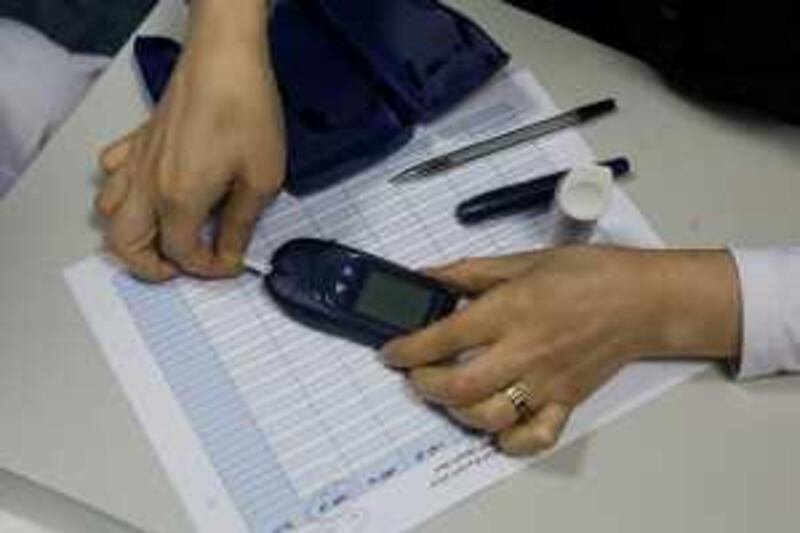More than one in five adults in the UAE have diabetes, according to data from local studies reported by the World Health Organisation. This is the second highest rate in the world and is more than double the rate seen in developed countries. The International Diabetes Federation predicts the incidence of adult diabetes in the UAE will increase to one in three by 2025. The main causes are poor diet and lack of exercise, which also lead to particularly high rates of obesity in the UAE. There is no sign of this slowing down in the near future unless individuals and communities work towards fostering more healthy lifestyles.
For the most common type of diabetes (type 2, known as adult-onset diabetes), prevention is key. All adults should take 30 minutes of moderate physical activity (something that makes them slightly out of breath) at least five days a week. The Health Authority-Abu Dhabi takes the approach that "health is everywhere". Physical activity need not mean visiting the gym. Exercise can be incorporated into normal daily activities, such walking briskly, using stairs instead of lifts, and taking the children out for a bike ride or swim.Given the seriousness of diabetes in the UAE and elsewhere in the region, I am delighted to have the opportunity to discuss the issues surrounding this disease with some of the greatest global health minds in the world at the conference in Al Ain this week.
The imbalance between the energy taken through food and that used in exercise can also be attributed to the type of food we eat compared with a few decades ago. In general our diets have excessive calories, sugar, fat and salt, which predispose to obesity, diabetes, high blood pressure and cardiovascular disease. The opportunities to improve our diets lie with individuals but can be strongly affected by what is available to consumers and by the nutritional information on food packages. The health authority seeks to work with key decision-makers to ensure that healthy food is available in Abu Dhabi.
While prevention is key to curbing the increasing rates of diabetes, there are potential therapeutic opportunities for those with the earliest signs of the disease (pre-diabetes). The health authority is looking to partner with international organisations to investigate the use of drug treatments for the Abu Dhabi population. There are increasing opportunities to use new technologies to drive much of this behaviour. An example is in the remote monitoring of diabetes control for individuals to encourage optimal control of blood-sugar levels. This has been shown to reduce the chance of developing heart attacks and strokes as well as eye, nerve and kidney diseases.
Lifetime treatment of diabetes is costly not only to the health service but also to the economy generally. A recent study in Al Ain communicated by Dr Fatma al Maskari found that the average yearly cost of diabetes care was US$3,995 (Dh14,600) per patient, and as high as $6,175 in those who have developed complications. This means diabetes is costing up to $1.3 billion per year, and rising, in Abu Dhabi alone. Added to this are the indirect costs of loss of productivity and early death.
Needless to say, I look forward to hearing Dr Fatma speak at the conference this week in greater detail. Type 2 diabetes is a preventable condition, but there are serious health consequences once it has developed. With individual, community and multi-sector involvement there are opportunities in the UAE to reduce the number of residents who suffer from this debilitating lifelong condition. Dr Harrison is director of public health and policy at the Health Authority-Abu Dhabi, the regulatory body of the health care sector in the emirate of Abu Dhabi. He is scheduled to address the conference on Tuesday.





